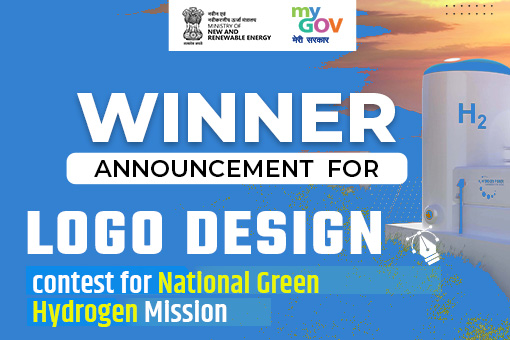To Fight Covid, We Must All Come Together

Ravi Shankar Prasad
We are living in truly challenging times. The loss of near and dear ones in the second surge of the Covid pandemic is painful. Those who have died include not only ordinary people but also eminent doctors, academics, business leaders, literary and public figures, editors and journalists, civil servants and people from the judicial fraternity. Their grief has to be our grief, too, because only by sharing sorrow can we develop a true national resolve.
Yet, there is a glimmer of hope. The positivity rate is declining, and new cases are down in 200 districts. The rate of recovery is a satisfying 86.7 per cent. As on May 19, nearly 18.58 crore doses of vaccine have been administered. There is a well-laid-out plan to increase the production capacity of vaccines. Covaxin production is projected to increase from 1.5 crore doses per month to 10 crore doses by September. Similarly, Covishield is projected to increase its production up to 10 crore doses per month by August. This, along with Sputnik and many other vaccines in the pipeline, implies that the government has a clear roadmap for the production of 216 crore vaccines before the end of this year.
It is necessary to understand the scale of the challenge. In the first wave of Covid, the total number of cases in one year — from March 31, 2020 to March 31, 2021 — as per WHO data, was 1.20 crore approximately. The fatality percentage was 1.34 per cent. In contrast, in the second wave, within a short span of 49 days — from April 1 to May 19 — the total number of Covid cases reported was 1.31 crore and the fatality percentage was 1.10 per cent. Yet, there is hope in this WHO data. Deaths per lakh population in India was 21, whereas it was 181 in USA, 166 in France, 195 in UK, 209 in Italy, 171 in Spain and 106 in Germany. I must clarify that any death anywhere is very painful.
When the second wave started initially in Maharashtra, the Government of India started taking proactive steps. On March 17, Prime Minister Narendra Modi took a meeting of all chief ministers and specifically told them to take all proactive measures to contain the second surge. He held a series of meetings with doctors, drug manufacturers and industrialists and many other stakeholders to accelerate the operations against Covid-19.
It is important to note that the government has recorded focused attention to the healthcare sector by increasing the total outlay on health and well-being by more than 137 per cent last year. It is important to note that since 2014, the number of AIIMS campuses have grown from six to 22, medical colleges have increased from 381 to 565 and number of graduate and post-graduate seats in medical education has increased by 58 per cent and 80 per cent respectively. In the last budget, Rs 35,000 crore was earmarked for vaccines, with commitment for more, and overall healthcare allocation was Rs 2.23 lakh crore.
During the second wave, the first challenge was to ensure adequate oxygen supply. Oxygen production has increased from 5,700 MT per day in August 2020 to 9,446 MT per day in May 2021. Capacity utilisation has also gone up enormously. Starting with prohibiting industrial use of liquid oxygen, all the manufacturers, private or public, were asked to ramp up production of liquid medical oxygen. Apart from manufacturing, transportation of oxygen was also very important. This included the very successful Oxygen Express movement by Indian Railways and utilisation of the Indian Air Force for airlifting of oxygen containers. A remarkable enhancement has been in the capacity of tankers, which in March 2020 was 12,480 MT and has now gone up to 23,056 MT. The number of tankers has also gone up from 1,040 to 1,681. The movement of oxygen tankers is overseen by an IT-enabled real-time tracking system.
Other resources have also been mopped up under the PM Cares fund, hotly criticised by the Opposition. Provision for 50,000 ventilators, 1.50 lakh oxycare systems, 1 lakh portable oxygen concentrators, 551 oxygen generation plants has been made. There is extraordinary participation by the private sector, corporates and NGOs in making faster provision during this challenge.
This unprecedented crisis required all of us to rise above political differences. The right to criticise and the right to suggest is surely welcome but derailing any effort is unfortunate. If some Opposition leaders dubbed the vaccine as BJP’s vaccine and questioned its efficacy, and in some Opposition-ruled states ventilators were not used properly because it had come from PM CARES fund, then it is not only unfortunate but also insensitive.
One only needs to recall the reckless comments of some of the main leaders of the principal Opposition parties. Their only concern has been to damage the reputation of the Prime Minister by resorting to falsehood.
The holding of elections in many states is also being questioned. Under Article 172 of the Constitution, the duration of the state legislature is five years, after which the assembly is automatically dissolved. The Election Commission successfully held the Bihar election last year. No political party, including from Kerala and Bengal, had asked for the postponement of elections. Obviously, a popularly elected government has a greater mandate to effectively address the concerns of Covid and give relief to people.
Today, the entire world has lent proactive support to India in her fight against Covid. The arrival of assistance from different parts of the globe is a great success of India’s diplomacy. This could happen because India lent a helping hand to various countries of the world during their time of crisis and need. We cannot ask for raw materials for vaccines from different countries but say we will not give you any vaccines. We cannot also ignore the needs of the poor countries of the world. But we did not do so at the cost of Indians. We know these are challenging times and we need to constantly learn and improve. Also, we need to trust the resolve of India and Indians and I have not the slightest of doubt that we shall overcome.
This column first appeared in the print edition of The Indian Express on May 21, 2021 under the title ‘Together against Covid’. The writer is Union minister for Law and Justice, Communications, Electronics and IT.





